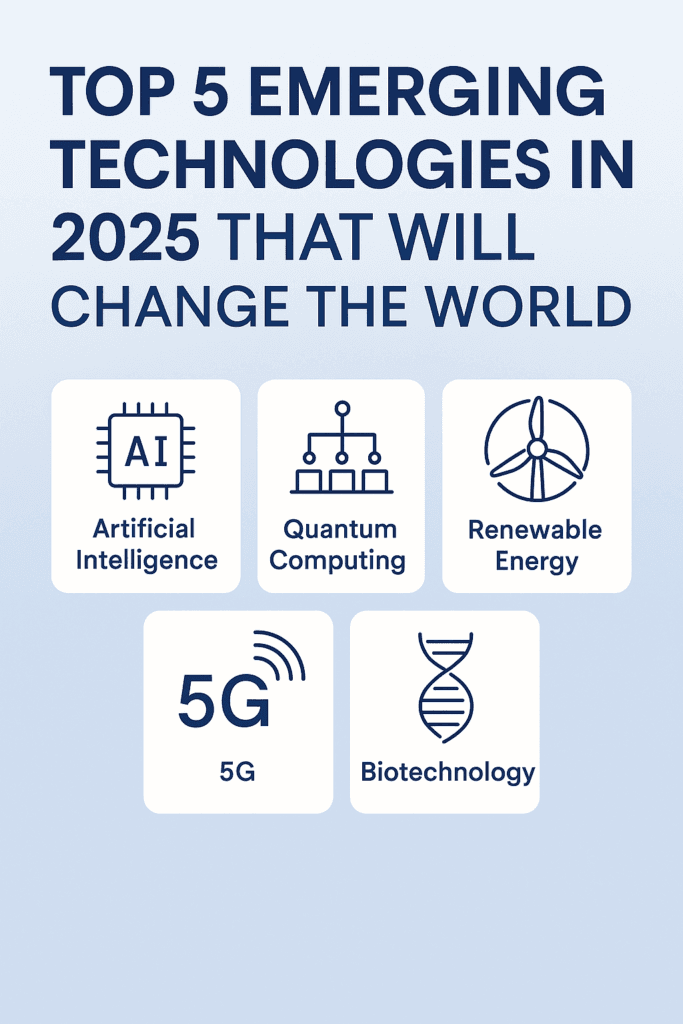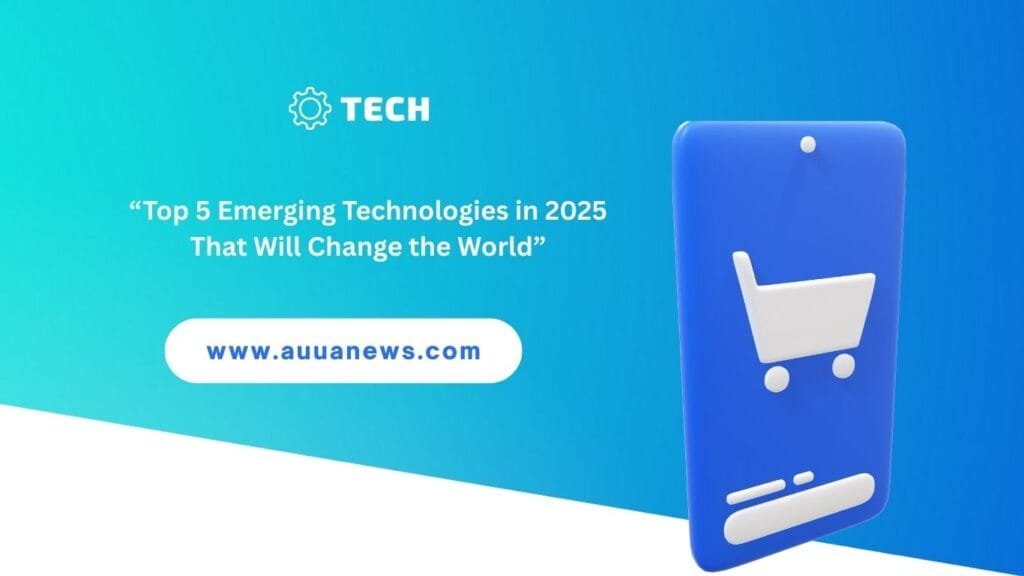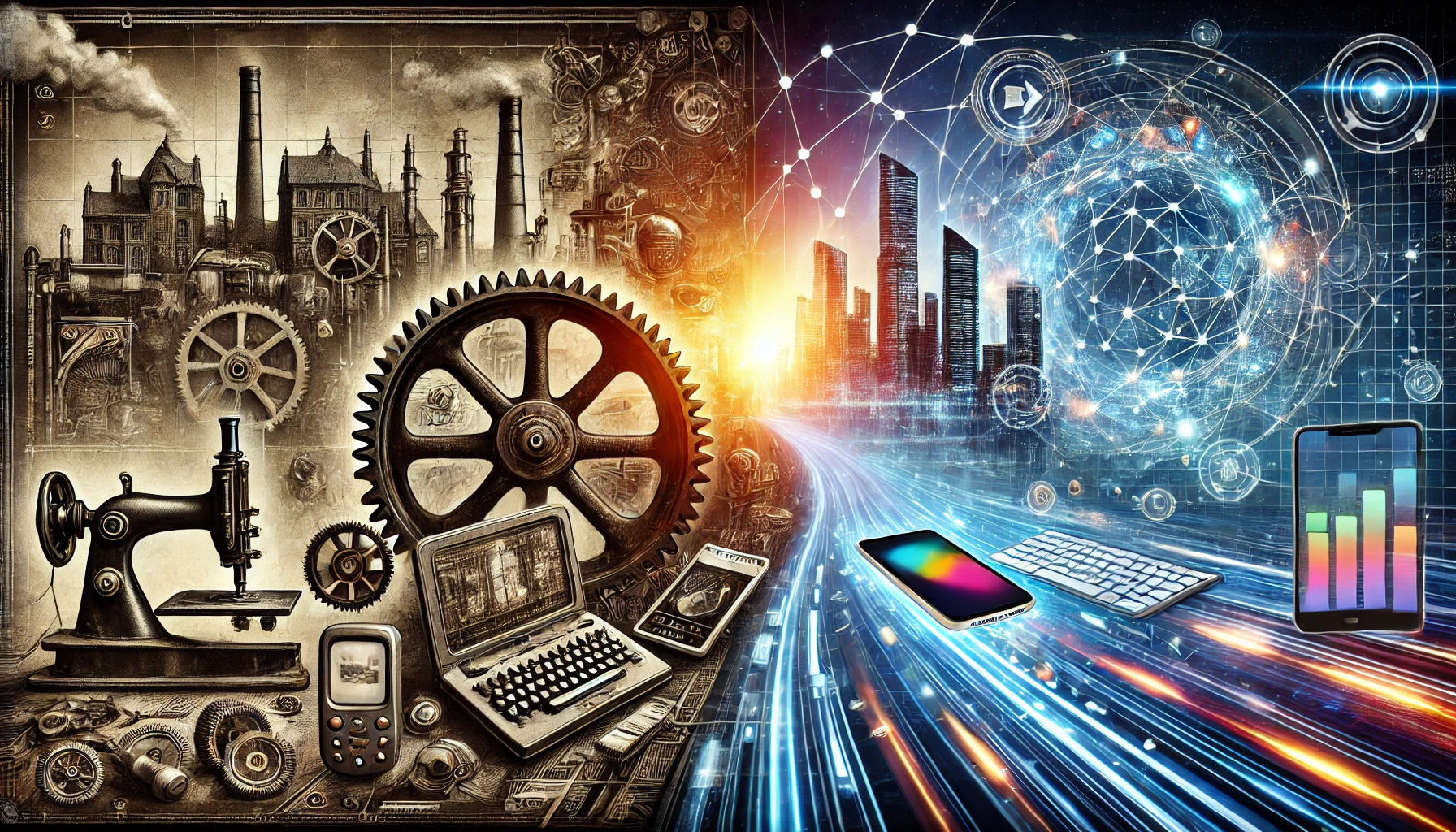Introduction to Emerging Technologies in 2025
As we step into 2025 , Emerging technologies , the world stands on the brink of a technological revolution that promises to reshape industries, economies, and daily life. Emerging technologies, driven by rapid advancements in science and innovation, are set to change the way we work, communicate, and solve global challenges. From artificial intelligence to renewable energy, these breakthroughs hold the potential to unlock new opportunities and address pressing issues, making 2025 a pivotal year for technological progress.
Why Emerging Technologies Matter for the Future
The technologies emerging in 2025 are more than just innovations—they are the foundation for a sustainable and prosperous future. They have the power to drive economic growth, improve healthcare, enhance communication, and protect the environment. By embracing these advancements, societies can tackle complex problems such as climate change, disease, and resource scarcity. Understanding why these technologies matter helps us prepare for the changes ahead and ensures that their benefits are shared by everyone.

Technology 1: Artificial Intelligence and Machine Learning Advancements
Artificial Intelligence (AI) and Machine Learning (ML) continue to evolve at a rapid pace, transforming industries across the globe. In 2025, advancements in AI are expected to enable smarter automation, improved decision-making, and personalized experiences in sectors like healthcare, finance, and education. These technologies are not only enhancing productivity but also opening new possibilities for innovation, from self-driving cars to advanced data analysis, making AI and ML key drivers of the technological future.
Technology 2: Quantum Computing Breakthroughs
Quantum computing is poised to revolutionize computing power by solving complex problems that are beyond the reach of classical computers. In 2025, breakthroughs in quantum technology will accelerate advancements in fields such as cryptography, material science, and drug discovery. Although still in its early stages, quantum computing promises to unlock new levels of efficiency and innovation, potentially transforming industries and enabling solutions to challenges that were once thought impossible.
Technology 3: Next-Generation Renewable Energy Solutions
Next-generation renewable energy technologies are set to redefine how we produce and consume power in 2025. Innovations such as advanced solar panels, wind turbines, and energy storage systems are becoming more efficient and affordable, helping to reduce dependence on fossil fuels. These solutions not only aim to combat climate change but also promise to provide clean, sustainable energy to remote and underserved regions, driving global efforts toward a greener and more resilient future.
Technology 4: 5G and Beyond – The Future of Connectivity
The rollout of 5G technology is revolutionizing how we connect and communicate, offering faster speeds, lower latency, and greater capacity than ever before. In 2025, the evolution beyond 5G—often called 6G—is already on the horizon, promising even more seamless connectivity for smart cities, autonomous vehicles, and the Internet of Things (IoT). These advancements will enable new applications and experiences, transforming industries and everyday life by making real-time data exchange ubiquitous and reliable.
Technology 5: Biotechnology and Genetic Engineering Innovations
Biotechnology and genetic engineering are making remarkable strides in 2025, reshaping healthcare, agriculture, and disease prevention. Innovations like CRISPR gene editing, synthetic biology, and personalized medicine are enabling scientists to treat genetic disorders more effectively and develop crops that are more resilient to climate change. These technologies not only hold the potential to cure previously untreatable diseases but also contribute to global food security and environmental sustainability, marking a new era in life sciences.
Impact of These Technologies on Daily Life

The emerging technologies of 2025 are already beginning to influence how we live, work, and interact. From smart homes powered by AI to wearable health devices that monitor our well-being in real time, these innovations are making everyday tasks more efficient and personalized. They’re also changing how we access information, shop online, and receive medical care. As these technologies continue to evolve, their integration into daily life will become even more seamless, reshaping routines and expectations across the globe.
Challenges and Ethical Considerations
While emerging technologies offer immense benefits, they also raise important challenges and ethical questions. Issues such as data privacy, job displacement due to automation, and the misuse of AI highlight the need for responsible innovation. Genetic engineering and quantum computing, for example, could be misused if not properly regulated. As these technologies become more powerful, it’s crucial for governments, businesses, and society to work together to ensure they are developed and used in ways that are fair, transparent, and beneficial to all.
How Businesses Can Prepare for These Changes
To stay competitive in 2025 and beyond, businesses must actively adapt to emerging technologies. This means investing in digital transformation, upskilling employees, and embracing innovation across all levels of operation. Companies that integrate AI, data analytics, and automation into their workflows will gain a strategic edge. Additionally, staying informed about technological trends and fostering a culture of continuous learning can help businesses respond to change quickly and effectively, ensuring long-term growth and resilience.
The Role of Governments in Supporting Technological Growth
Governments play a vital role in shaping the future of technology through policy, funding, and regulation. In 2025, their support is crucial for driving innovation while ensuring ethical standards are maintained. By investing in research, supporting education in science and technology, and creating fair legal frameworks, governments can help startups and industries thrive. Additionally, international cooperation is essential to address global tech challenges such as cybersecurity, digital inequality, and climate change through unified action.
Conclusion: What to Expect from the Tech Revolution in 2025
The tech revolution of 2025 is more than just a wave of innovation — it marks the beginning of a new era that will transform every aspect of our lives. From AI and quantum computing to renewable energy and biotechnology, these advancements hold the promise of solving some of the world’s most pressing problems. While challenges remain, the potential benefits are enormous. By staying informed, adapting to change, and promoting responsible use, individuals, businesses, and governments can all play a part in shaping a smarter, more connected, and more sustainable future.















